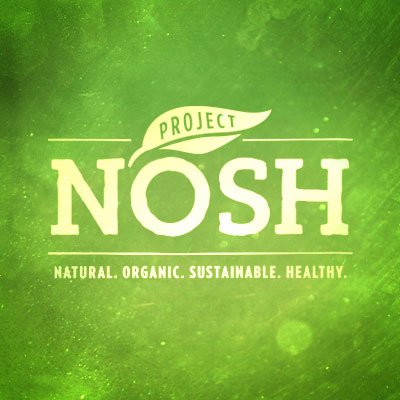
Genetically-Engineered Microbes Pose an Unspeakable Risk, But Most People Won't Tell You This
Image courtesy of Protect Nature Now
“There could be unintended consequences to the environment generally or the health and safety of our employees or the public as a result of an unauthorized release of genetically modified materials into uncontrolled environments.” — Ginkgo Bioworks 2021 prospectus
If you read the statement above, it sounds terrifying.
Yet, whether it is in the media or at Natural Products Expo West (which actively promotes GMO 2.0 foods), the risks of these technologies are very often brushed aside. Even worse, GMO proponents tend to attack organic advocates for being environmentally irresponsible and reckless when these technologies are criticized.
What this points to is that unless someone is legally mandated to acknowledge the risks of GMO 2.0 foods, such as what Ginkgo Bioworks has done in its filings with the U.S. Securities and Exchange Commission, they will not do so.
And there is more.
“The genetically engineered organisms and materials that we develop may have significantly altered characteristics compared to those found in the wild, and the full effects of deployment or release of our genetically engineered organisms and materials into uncontrolled environments may be unknown.” — Ginkgo Bioworks 10-K from 2022
“We could synthesize DNA sequences or engage in other activity that contravenes biosecurity requirements.” — Ginkgo Bioworks 10-Q for the period ended 3/31/22
These disclosures may very well be alluding to the inadvertent release of genetically-engineered microbes that many GMO 2.0 companies utilize and the completely unknown impacts they could have on our food supply and on the human microbiome.
“From a health and environment standpoint, the most dangerous GMOs are genetically-engineered microbes,” said Jeffrey Smith, founding executive director of the Institute for Responsible Technology and the founder of Protect Nature Now, a movement to safeguard the global microbiome. “GE-microbes may circle the globe with alarming speed, mutate and exchange genetic material with other species. They also may promote human disease, and damage or collapse ecosystems.”
For example, harmful GE-microbes in the soil could negatively interact with fungi and bacteria in the ground, attack and kill plants, spread to other farms and potentially eliminate our ability to grow organic food. As shown in the recent documentary Don’t Let the Genie Out of the Bottle, we were two weeks away from the release of a GE-microbe that might have caused such a disaster.
“Many lab-grown meat and precision fermentation companies are using GE-microbes and mutated animal cells, and so the possibility that something goes wrong is very real,” echoed Alan Lewis, vice president of regulatory affairs at Natural Grocers and one of the industry’s most knowledgeable activists. Alan was recently banned from LinkedIn for his opinions related to this subject.
As we have just experienced with the worldwide pandemic over the past few years, the SARS-CoV-2 virus spread around the globe like wildfire, killing millions of people and destroying economies. Once it was in the atmosphere, it could not be recalled.
But it gets worse.
“Harmful GE-microbes might enter into our intestinal tract, swap genes with our existing microbiome and cause potentially catastrophic damage. When we explain the risks to doctors who understand how critical the microbiome is for health, there’s an OMG moment. They suddenly realize that releasing engineered microbes puts us all in unprecedented danger,” said Jeffrey Smith.
Unfortunately, the microbes are not just originating from GMO 2.0 companies. Lab equipment and CRISPR kits, a gene-editing tool, are available for sale to anyone online.
WHAT TO DO
Just like the grass-roots movement seeking to halt the development of artificial intelligence for six months, the same must be done with genetically-engineered microbes.
Protect Nature Now is spearheading this effort and is calling for at least a temporary ban on releasing GE-microbes into the environment.
“This has to happen globally, and we need collaboration with individuals and organizations all over the world who understand that the microbiome must be protected,” put forth Jeffrey Smith. “With such a movement, we will have the power to create national laws and international treaties needed to protect our health, our environment and our future. But time is of the essence.”
Until then, whenever GMO 2.0 advocates dismiss the worry about these technologies, the lawyers and bankers of publicly-traded GMO 2.0 companies will tell you otherwise.
Be sure to watch the short film “Don’t Let the Genie Out of the Bottle” to learn more.
How We Operate: At Organic Insider, we accept no advertising, we have no paywalls and we make our newsletters free to everyone because vital information about our industry needs to get out to as many people as possible. Please consider supporting our work, whether you are an individual or a company. Thank you so much.
 |
With gratitude, 
Max Goldberg, Founder |
Quick Hits
* Dr. Bronner’s has launched a new, limited-edition label of its Castile Liquid Soaps in Canada, with the message ‘Protect Orcas!’ to promote the documentary film Coextinction.
* Patagonia’s CEO Ryan Gellert on “Being greener than green — and making a profit”
* Marcus Antebi, founder of Juice Press, has opened goodsugar on Manhattan’s Upper East Side.
* Thrive Market has partnered with rePurpose Global to fight plastic pollution, and all of its owned brands are now officially Plastic Neutral certified.
* In personnel moves, Foxtrot has named Liz Williams as CEO, and Global Organics has promoted Aaron Iverson to national sales manager.
* Natural Grocers has launched the Sixth Annual Ladybug Love Campaign.
* In Miami, amenities at The Well’s first fully integrated wellness residences include a local CSA with organic produce.
* The Joy of Well-Being: A Practical Guide to a Happy, Healthy, and Long Life — the new book from Colleen and Jason Wachob, co-founders of mindbodygreen — is now available for pre-sale.
* Her garden design business puts edible greenery front and center.
* These organic blueberries are a national treasure.
New Organic Products
Honey Alternative Cashewmilk Yogurt from Forager Project
New from Forager Project is a Honey Alternative Cashewmilk Yogurt, which uses fruit juices and cane sugar to replicate honey's sweet flavor, and the cashews are sourced from small farmers in Cambodia, Vietnam and the Ivory Coast. Certified organic, bee-free, vegan and gluten-free. Available at select retailers nationwide.Biodynamic Moringa Powder from Dr. Mercola
Dr. Mercola has introduced an organic Biodynamic moringa powder, which is made only from the dried leaves of the moringa tree, where the valuable nutrients are most concentrated. Not only does a dried moringa leaf provide three to five times more nutrients than a fresh leaf right off the tree, but moringa can have as much as 30x the iron of spinach.Regenerative Organic Certified® Tea from Wild Orchard
Grown in volcanic soil on the pristine island of Jeju, South Korea, the tea from Wild Orchard has just achieved Regenerative Organic Certified® -- silver status. The tea bags are 100% bio-based, and the outer box is made with 100% recyclable paper, and Wild Orchard tea is served in some of the world's best restaurants.Protein Popcorn from IWON Organics
IWON Organics has unveiled a line of protein popcorn that is available in three flavors -- Sweet & Salty, White Cheddar, and White Truffle & Sea Salt. They are all made with coconut oil and come in both 1-ounce and 4-ounce options. Certified organic and Non-GMO.
Weekly News Summaries

Mexico Calls U.S. Bluff on Science of GMO Corn Restrictions
By Timothy A. Wise
Contrary to what our government believes, the science is not settled when it comes to GMOs and glyphosate.

USDA Announces $75 Million to Assist Producers Transitioning to Organic
The USDA’s Natural Resources Conservation Service just released details about its $75M investment in conservation assistance for producers transitioning to organic production.

General Mills establishes Multi-Year Partnership with Rodale Institute
Among other things, farmers in the General Mills supply chain will get access to organic farming technical assistance from Rodale.


Lab-Grown Chicken Meat is Getting Closer to Restaurant Menus and Store Shelves
By Devin Dwyer and Sarah Herndon
More genetically-engineered food, whose long-term safety profile is completely unknown, will soon be landing on the plates of restaurant diners.
After Growing GMO Corn for Decades, Some U.S. Farmers are Open to Mexican Restrictions
By Tom Polansek
Mexico has found unexpected allies as it tries to limit imports of GMO corn: some U.S. farmers who grow the crops.

Olyra raises $4M Series A
By Lukas Southard
The organic Greek biscuit company recently closed a round of financing, which was led by Mexico's Grupo Bimbo.


Planet Organic, the Whole Foods of the UK, is Headed Toward Bankruptcy
By Mark Kleinman
Possible suitors, including Redbus Ventures, may swoop in and save the struggling chain.
Bee-Killing Insecticide is Likely Putting 4% of All Endangered Plants and Animals in Jeopardy of Extinction
The EPA must remove this dangerous chemical from the market immediately.

Following a Change in the Law, Gene-Edited Food can now be Developed Commercially in England
By Pallab Ghosh
Just another reckless policy that puts our food supply in peril.
Want to share this newsletter on social media? You can use this link: Newsletter Link
The material in this newsletter is copyrighted and may be reprinted by permission only. All requests must be in writing. Please use our contact form to request republication rights.
Newsletter Archive
Quick Hits
* Dr. Bronner’s has launched a new, limited-edition label of its Castile Liquid Soaps in Canada, with the message ‘Protect Orcas!’ to promote the documentary film Coextinction.
* Patagonia’s CEO Ryan Gellert on “Being greener than green — and making a profit”
* Marcus Antebi, founder of Juice Press, has opened goodsugar on Manhattan’s Upper East Side.
* Thrive Market has partnered with rePurpose Global to fight plastic pollution, and all of its owned brands are now officially Plastic Neutral certified.
* In personnel moves, Foxtrot has named Liz Williams as CEO, and Global Organics has promoted Aaron Iverson to national sales manager.
* Natural Grocers has launched the Sixth Annual Ladybug Love Campaign.
* In Miami, amenities at The Well’s first fully integrated wellness residences include a local CSA with organic produce.
* The Joy of Well-Being: A Practical Guide to a Happy, Healthy, and Long Life — the new book from Colleen and Jason Wachob, co-founders of mindbodygreen — is now available for pre-sale.
* Her garden design business puts edible greenery front and center.
* These organic blueberries are a national treasure.




